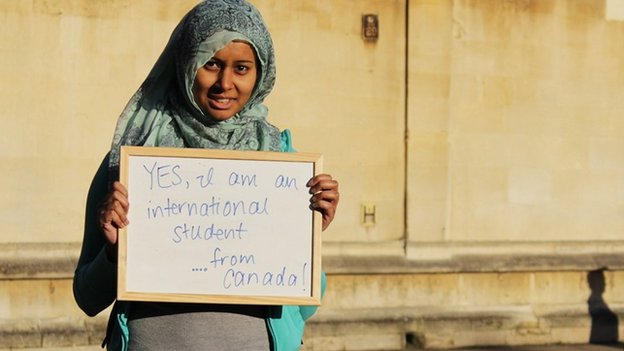INTRODUCTION
Muslims in the West face a barrage of negative images in the media as a result of Islamophobia, xenophobia, and anti-Black, anti-Arab, and/or anti-South Asian racism. After the shooting in Chapel Hill, North Carolina, Muslims across the country are grieving the murders of Deah Shaddy Barakat, his wife Yusor Mohammad and her sister Razan. Some members of Muslim communities have faced increased intimidation, and others fear copycat crimes and further backlash. Many Muslims are experiencing psychological trauma in addition to these environmental stresses that Muslims have been facing. Whether in their work places, schools, public places, or neighborhoods, Muslims feel pressured to defend their identity, be exemplary citizens, and counter negative images of Muslims. Although Islamophobia is a form of religious discrimination, Muslims are a racialized group subject to interpersonal and structural racism in society. Thus, individuals with Arabic names, those who are identifiably Muslim, and/or those who appear non-white can be subject to racial stress.
EFFECTS OF ISLAMOPHOBIA
The forms of racism and Islamophobia can be subtle and overt. Nadal, Griffin, Hamit, Leon, Tobio and Rivera (2012) list six major themes of microaggressions:
- Endorsing Religious Stereotypes of Muslims as Terrorists
- Pathology of the Muslim Religion
- Assumption of Religious Homogeneity
- Exoticization
- Islamophobic and Mocking Language, and
- Alien in Own Land
The toxic climate of these microagressions, negative media representation, employment discrimination, and law enforcement surveillance has implications on the mental health of many Muslim Americans. According to the Counseling Center of University of Illinois Urbana-Champaign, race related stress causes has the following negative outcomes:
- Anger
- Anxiety
- Fear
- Frustration
- Depression
- Helplessness-Hopelessness
- Isolation
- Paranoia
- Resentment
- Sadness
- Self-blame
- Self-doubt
- Avoidance
- Disengaging
- Substance Use
- Heart Disease
- Hypertension
- Muscle Tension
RESPONDING TO ISLAMOPHOBIA
Individuals who experience racism and Islamophobia, as well as those who have observed it, often feel powerless when they do not know how to respond. Many people do not know how take action because they do not know how to respond when they witness someone telling an anti-Muslim joke or repeating anti-Muslim stereotypes. Students in particular may not know who to turn to or what recourse that they have. However, knowing strategies for addressing Islamophobia can be empowering. Moreover, studies have shown that bystander anti-racism does have an effect: evidence indicates that regardless of resistance or hostility expressed when confronted, people are less likely to express prejudiced views afterwards (this study). However, it is not the job of the victims of prejudice and discrimination to call out the perpetrators or make every Islamophobic incident a teachable moment. There is no one right way to respond to Islamophobia. However, there are three general strategies that can help Muslims cope: First, Muslims should draw on faith for strength and direction when subject to Islamophobia. In responding to Islamophobia, check your intentions. You will have a range of emotions, and keeping your connection and communication with Allah (swt) will help bring ease and guidance to any situation. Second, Muslims should find colleagues who will help by supporting them or by becoming advocates for addressing the situation. Organizations such as CAIR, Muslim Advocates, Take On Hate, NAACP, and SAALT advocate for and assist individuals facing racism and Islamophobia. Third, Muslims should seek professional help with trained therapists. If you are going to a mental health professional, be sure that the he/she is multiculturally competent and has an understanding of microaggressions and racial battle fatigue.
FURTHER RECOMMENDATIONS FOR COPING WITH ISLAMOPHOBIC-RELATED STRESS
The following are a few other suggestions that can help empower everyday Muslims: Connect You are not alone. You are part of the ummah. Although Islamophobia can cause feelings of isolation and depression, know that there are Muslims all over the country who share your experiences, will validate the reality that you are facing, and are open to provide you a sense of support and solidarity. Find your Roots Developing a positive cultural and religious identity will help combat the invalidating experience of Islamophobia. Knowing your religion and your heritage will help bolster you against the dehumanizing experience of racism and Islamophobia. Take a history course, watch a documentary, read the Qur’an, read the seerah, or even a historical fiction. Celebrate being Muslim and the contributions Muslims have made all over the world. Have a little faith Center yourself by building your Iman. Find hope in the Qur’an and sunnah, and strength in the early Muslim community who faced oppression. Focus on the power of dua and remembrance of Allah (swt). We must also be careful not to unwittingly convey the message that crying and feeling sad is unacceptable. We should absolutely trust in Allah’s wisdom and mercy, while also acknowledging how painful this is for so many Muslims. Take Care of You You can empower yourself with healthy habits. Taking care of your spiritual, mental, and physical health will help you cope with the stress of discrimination. Take a Stand Pushing back against anti-Muslim bigotry and discrimination is one one to empower yourself. Although this may look different depending on the situation, there are many ways that you can take a stand. (Adapted heavily from Coping with Discrimination) Report It Report any hate crimes. Call law enforcement if you see anything threatening. If this is happening in your workplace or school, report it to HR or student affairs.
REFERENCES
Kevin L. Nadal, Katie E. Griffin, Sahran Hamit, Jayleen Leon, Michael Tobio, and David P. Rivera . Subtle and Overt Forms of Islamophobia: Microaggressions toward Muslim America. Journal of Muslim Mental Health Volume VI, Issue 2, 2012 http://hdl.handle.net/2027/spo.10381607.0006.203 http://quod.lib.umich.edu/j/jmmh/10381607.0006.203?rgn=main;view=fulltext
Margari Aziza Hill is an adjunct professor, blogger, editor, and freelance writer with articles published in SISTERS, Islamic Monthly, and Spice Digest. After converting to Islam in 1993, her life experiences as a Black American woman have informed her research and writing on Islam, education, race, and gender. She has nearly a decade of teaching experiences at all levels from elementary, secondary, college level, to adult education. She has worked in education at various capacities including as substitute teacher, instructor, curriculum design, school policy, teacher training, as well as teaching assistant and teaching fellow. She taught Writing and Literature at Al-Aqsa Islamic Academy, developed instructed an Art and Literacy class for Clara Muhammad Summer Camp and worked as a Lead Teacher and Curriculum Developer at United Muslim Masjid Summer Madrasa. She earned her bachelor’s degree in History from Santa Clara University in 2003 and master’s in History of the Middle East and Islamic Africa from Stanford University in 2006. Her research includes colonial perceptions mixed-raced identities in Northern Nigeria, anti-colonial resistance among West Africans in Sudan during the early 20th century, transformations in Islamic learning in Northern Nigeria, and International student programs at Al-Azhar and Cairo University. She has given talks and lectures in various universities and community centers throughout the country.
This post was featured from MuslimARC’s blog reMARC, with permission from the author. Photo Source: BBC/ I Too Am Oxford






On the off chance that you are included in interfaith work, raise the subject of Islamophobia at your gatherings. Push the criticalness and requirement for individuals of all religions to help address and denounce it and every single other type of bigotry freely. On the off chance that conceivable, get the association to issue an open proclamation denouncing Islamophobia by and large, and in addition in light of particular occurrences like those said above.